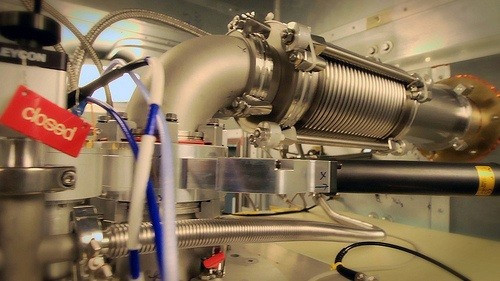Technology Focus: Products, Events Of The Year: 1st Half 2012

Now that we've passed through the first half of 2012, it's time to reflect on some technology events and anticipate what might be ahead. Maybe we can make a few predictions.
To be honest, there hasn't been a lot of dramatic new technology so far this year, nothing like the Kilby patent for the integrated circuit or the start of U.S. mobile service.
Still, here's a stab at several significant events:
IBM's split-second proof that 'quantum computing' is viable. Physicists at International Business Machines Corp. (NYSE: IBM), the No. 2 computer company, ran a series of quantum computing tests in January. Using superconducting technology at temperatures far below absolute zero (-459 degrees Fahrenheit or 0 on the Kelvin scale), they did it -- for only a ten-thousandth of a second.
This is the potential holy grail of computing, especially compelling as we move into the era of Big Data, where current terabytes of data will be dwarfed by millions of time more capacity.
Current computing relies solely upon 1s and 0s, but quantum computing, first envisioned by physicists like the late Nobel laureate Richard Feynmann, saw so-called qu-bits, quantum bits that can handle a little of both.
Even at IBM, there won't be a quantum computer for customers this year. But before long?
The drone. Daily, U.S. armed forces in Afghanistan, Yemen and other theaters are deploying these highly sophisticated deadly weapons to attack targets, principally people designated by the president as terrorists.
The best-known is the Predator, from General Atomics in Poway, Calif., but there are others from leading defense contractors here and in Israel, such as Israel Aircraft Industries.
Triumphs of mechanical, aeronautical and computer engineering, these $4 million devices demonstrably save lives but also cost them. Moral questions arise every time the White House reports a terrorist site has been hit.
IPad Imitators. Obviously, the current crown jewel of the tablet sector is the iPad from Apple (Nasdaq: AAPL), the world's most valuable technology company. The Cupertino, Calif., company likely sold 25 million units in the first half, its second and third quarters.
For the past 2½ years, the iPad has revolutionized personal computing and entertainment with its intuitive functions, ease of use and adaptability.
Besides its uses for entertainment, the iPad has been deployed in medical offices where patients record information and in teaching the autistic and handicapped.
So it's great that after Amazon.com Inc. (Nasdaq: AMZN), the No. 1 e-retailer, started shipping the Kindle Fire, both Microsoft (Nasdaq: MSFT), the world's biggest software company, and Google (Nasdaq: GOOG), the No. 1 search engine, will soon be shipping their challengers, the Surface and Nexus 7 respectively.
Both will be priced $300 below the iPad, a boon for consumers. The Microsoft Surface will have a keyboard embedded in the cover, which indicates the Redmond, Wash., company is prepared for the shift to mobility.
Think back to when IBM essentially crushed Apple with the IBM PC and then engineers like Rod Canion designed the plug-compatible Compaq computer. That fomented the PC revolution.
A year from now, it's likely tablet shipments could outpace PC shipments, as portability and computers flourish. Everyone benefits.
Upholding of the Affordable Care Act. This writer, unlike many, believed the U.S. Supreme Court would uphold this milestone and was glad to be proved right.
Estimates are that as much as $3.1 trillion will be spent preparing for it, especially for what President Barack Obama calls the digitization of medical records to prepare for insurance exchanges and boost information transfer within the medical community.
The law is a potential boom for the leading computer, software and instrument makers.
Having warned of slackening orders from the public sector, new orders for the likes of Cisco Systems (Nasdaq: CSCO), IBM, Hewlett-Packard (NYSE: HPQ), Microsoft, Oracle (Nasdaq: ORCL), storage giant EMC (NYSE: EMC) and instrument providers such as Agilent Technologies (NYSE: A) and PerkinElmer (NYSE:PKI), could be just what the doctor ordered.
© Copyright IBTimes 2025. All rights reserved.






















